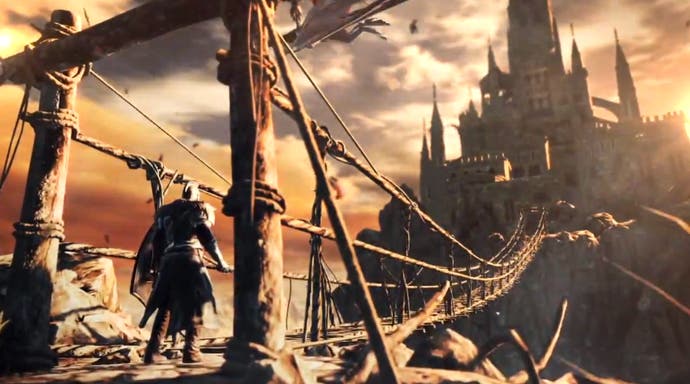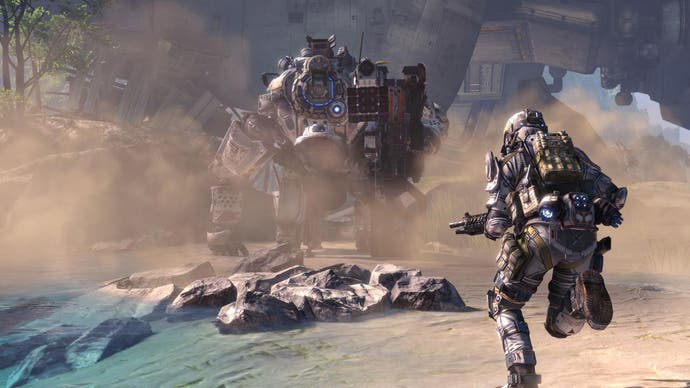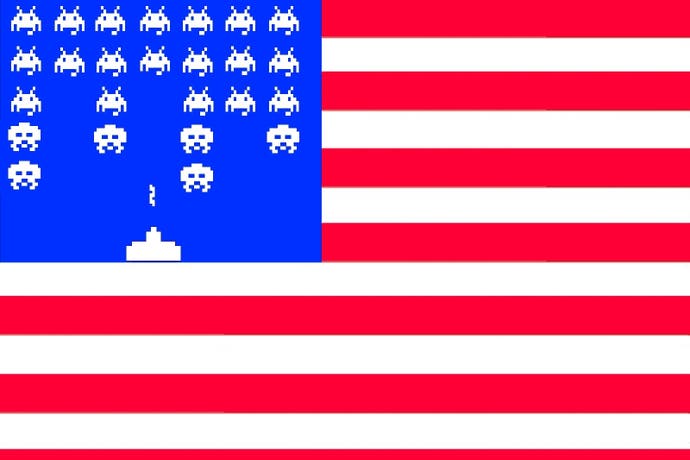Letter from America: Welcome... to die!
This week in the States, a terrible pandemic is killing gamers by the thousands.
Over in America, we have a thing called the Center for Disease Control, or CDC. You've probably heard of it, because any time a movie involves a virulent global disease or zombie apocalypse or something, the CDC gets called in to flail ineffectually at the problem before it spirals out of control and ravages the planet. They're the Lieutenant Worf of pandemics, basically.
This week, we've seen the CDC totally overwhelmed and helpless in the face of a gruesome epidemic that's already claimed the lives of countless thousands of game fanatics. But little wonder, as the victims have gladly flung themselves into the teeth of this killer. And once they're slain, they get up and do it again. I'm speaking, of course, about Dark Souls 2, the third chapter of the series that has reminded people who play video games that, oh yes, sometimes it's satisfying to fail. Or rather, it's satisfying to triumph after failure.
Games have steadily backed away from the idea of imposing steep challenges for years. For the most part, if you want a game to hold your feet over the fire, you need to look either to indie games (La-Mulana, Super Meat Boy, etc) or to the obscure niches like danmaku shooters - a genre that's catered to so small and so specific an audience that even its largest purveyor (Cave) has given up on it. The wherefores of this change are actually many and various, ranging from the need to appeal to as wide an audience as possible to the dominance of narrative over gameplay. But a big part of the problem is that making challenging games is a hell of a challenge in and of itself.

"Hard" is not the same thing as "challenging". Anyone can make a game that's simply hard, but "challenging" implies the possibility that you can earn a victory through fair play, hard work or sheer discipline. Properly challenging games come along far too infrequently, and only a handful of studios seem to specialise in them. As it turns out, From Software happens to number among those few, and according to reviewer Bob Mackey Dark Souls 2 captures the essential essence of great, challenging design. It's the kind of game where we fall down so that we can learn to pick ourselves up again. Alfred would be so proud.
At the other end of the difficulty spectrum, Mike Williams and I tackled Nintendo's latest platformer, Yoshi's New Island. The hardest thing about that game, at least as a reviewer, was trying to balance the expectations borne of being a fan against the reality of what a game's developers have created. While I would have preferred Yoshi's New Island blow my mind the way the original did nearly (oh god has it really been) 20 years ago, both Mike and I agreed that what Nintendo and Arzest came up with was absolutely rock-solid and a lot of fun... even if it was an utterly by-the-numbers affair.
The other big release for the week - actually, the biggest - came in Respawn's Titanfall, otherwise known as the reason a few million people own Xbox Ones, and no doubt a major factor in the narrowing sales difference in the two new-gen platforms - the Soviet missile gap of our era.

Titanfall fits into a different area of the difficulty rubric than Dark Souls 2 and Yoshi's New Island, given that it's entirely a multiplayer experience. The challenge there, as with the likes of Hearthstone (which finally emerged from our long national nightmare of beta status) and Frozen Endzone, comes entirely from the company you keep. If you play with skilful players, you're going to make yourself look terrible. The solution, of course, is to carefully vet your competition so that you always play against people slightly worse than yourself. You could also try to better yourself, I suppose, but it seems so futile. Like all online games supported by a private service, eventually, Titanfall may go away forever.
Oh, right, and there was one more release worth noting: The HD remake of Final Fantasy X and X-2 is out in a few days. I'm pretty sure Final Fantasy has the industry's most arcane numeration - the sequel to Final Fantasy XIII was XIII-2, not XIV - so we put together a small primer to the series for the benefit of anyone who might be curious about this whole Final Fantasy thing but understandably finds navigating its sprawling discography to be a daunting task. I'm sure you folks are all savvy and in the know, but outreach is important, right?
Both Jaz and I will be powering through Game Developers Conference 2014 next week. Somehow we've managed to line up interviews with an impressive number of classic game creators, so expect next week's Letter from America to consist entirely of links to misty-eyed interviews with the people who created games we loved 30 years ago. Until then!
Jeremy Parish is senior editor of USgamer.net, a version of Eurogamer from the opposite side of the pond.
